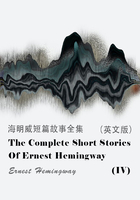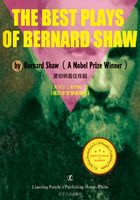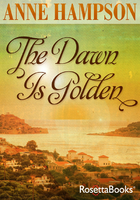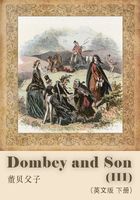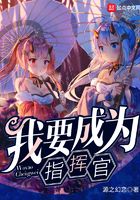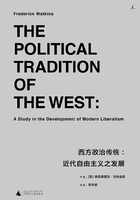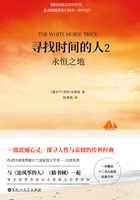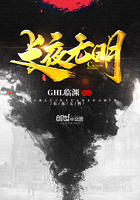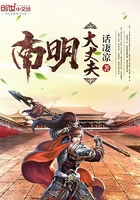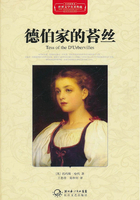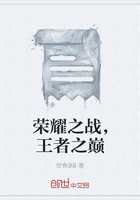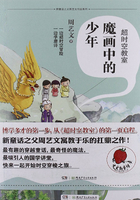THE FALL OF MAN
(a) God permitted Adam and Eve, his wife, to eat fruit from every tree in Eden except the Tree of Knowledge of Good and Evil, which it would be death to taste or even touch. The Serpent who was there subtly asked Eve: 'Has God not forbidden you to eat any fruit whatsoever?' She answered: 'No, but he warned us on pain of death to abstain from a certain tree in the middle of this garden.' The Serpent cried: 'Then God has deceived you! Its fruit does not cause death, but only confers wisdom: He is keeping you in ignorance.' Thus Eve was persuaded to taste the fruit, and made Adam do likewise.[130]
(b) When they had eaten, Adam and Eve looked at each other and, suddenly understanding that they were naked, plucked fig-leaves and sewed them into aprons. They heard God walking through the garden at dusk, and hid among the trees. God called: 'Adam!', and again: 'Adam, where are you?' Adam looked out from his hiding-place and said: 'I heard Your approach, Lord, and hid my nakedness for shame.' God asked: 'Who told you of nakedness? Have you then eaten fruit of the forbidden tree?' Adam answered: 'Eve gave me fruit from the tree, and I ate it.' God turned to Eve: 'Alas, woman, what have you done?' She sighed, saying: 'The Serpent tricked me.' God cursed the Serpent: 'You shall lose your legs, and writhe upon your belly for ever, eating dust! I set a lasting enmity between you and woman. Her children will stamp on your children's heads until their heels are bruised.'[131]
Then He cursed Eve: 'I will multiply your labour and sorrow; you shall bear children in pain; you shall yearn for your husband, and be ruled by him!'
(c) His next curse fell upon Adam: 'Because you have listened to Eve rather than to Me, I curse the soil that you must now till all the days of your life, eating bread in the sweat of your brow, struggling to uproot thorns and thistles. And at length death shall return your body to the dust from which I formed it!'[132]
(d) Since aprons of fig-leaves were too fragile for such hard labour, God mercifully made Adam and Eve garments of skin. But He said to Himself: 'This man has become like a god in his knowledge of good and evil! What if he were to pluck the fruit hanging on the Tree of Life, and live eternally?' With that, He drove Adam out of Eden, posting at its East Gate certain cherubim called 'the Flame of Whirling Swords', to bar his way.[133]
(e) The Serpent had rudely thrust Eve against the Tree of Knowledge, saying: 'You have not died after touching this tree; neither will you die after eating its fruit!' He also said: 'All former beings are ruled by the latest beings. You and Adam, created last of all, rule the world; eat therefore and be wise, lest God send new beings to usurp your rule!' As Eve's shoulders touched the tree, she saw Death approaching. 'Now I must die,' she groaned, 'and God will give Adam a new wife! Let me persuade him to eat as I do, so that if we must both die, we shall die together; but if not, we shall live together.' She plucked a fruit and ate, then tearfully pleaded with Adam until he agreed to share it.[134]
(f) Eve later persuaded all beasts and birds to taste the fruit—or all except the prudent phoenix, which has remained immortal ever since.[135]
(g) Adam wondered at Eve's nakedness: because her glorious outer skin, a sheet of light smooth as a finger-nail, had fallen away.[136] Yet though the beauty of her inner body, shining like a white pearl, entranced him, he fought for three hours against the temptation to eat and become as she was; holding the fruit in his hand meanwhile. At last he said: 'Eve, I would rather die than outlive you. If Death were to claim your spirit, God could never console me with another woman equalling your loveliness!' So saying, he tasted the fruit, and the outer skin of light fell away from him also.[137]
(h) Some hold that Adam, by eating the fruit, won the gift of prophecy;[138] but that, when he tried to pluck leaves for an apron, the trees drove him off, crying: 'Begone, thief, who disobeyed your Creator! You shall have nothing from us!' Nevertheless, the Tree of Knowledge let him take what he wished—they were fig-leaves—approving his preference of wisdom to immortality.[139]
(i) Others make the Tree of Knowledge an immense wheat stalk, taller than a cedar; or a vinestock; or a citron-tree, whose fruit is used in celebration of Tabernacles. But Enoch reports that it was a date-palm.[140]
(j) According to some, the garments God gave Adam and Eve resembled fine Egyptian linens from Beth Shean, that mould themselves to the body;[141] according to others they were of goat-skin, or coney-skin, or Circassian wool, or camel's hair, or of the Serpent's slough.[142] Others again say that Adam's garment was a High-priestly robe, bequeathed by him to Seth; who bequeathed it to Methuselah; whose heir was Father Noah. Although his first-born son, Japheth, should have inherited this robe, Noah foresaw that the Children of Israel would spring from Shem, to whom therefore he entrusted it. Shem gave the robe to Abraham who, as God's beloved servant, could claim the first-born's right; Abraham to Isaac; Isaac to Jacob. It then passed to Reuben, Jacob's first-born son; and so the legacy continued, generation after generation, until the privilege of offering up sacrifices was taken by Moses from the first-born of Reuben's house, and given to Aaron the Levite.[143]
(k) Adam and Eve were driven out of Eden on the First Friday, the day in which they had both been created and had sinned. On the First Sabbath, Adam rested and prayed God for mercy. At its close he went to the Upper Gihon, strongest of rivers, and there did seven weeks' penance, standing in midstream with water to the chin, until his body turned soft as a sponge.[144]
(l) Afterwards an angel came to Adam's comfort, and taught him the use of fire-tongs and a smith's hammer; also how to manage oxen, so that he should not fall behindhand in his ploughing.[145]
***
1. Some elements of the Fall of Man myth in Genesis are of great antiquity; but the composition is late, and even in places suggests Greek influence. The Gilgamesh Epic, the earliest version of which can be dated about 2000 B.C., describes how the Sumerian Love-goddess Aruru created from clay a noble savage named Enkidu, who grazed among gazelles, slaked his thirst beside wild cattle and sported with dolphins—until a priestess sent to him by Gilgamesh initiated him into the mysteries of love. Though wise as a god, he was now shunned by the wild creatures; and the priestess therefore covered his nakedness, using part of her own garment, and brought him to the city of Uruk, where he became blood-brother to the hero Gilgamesh. Later, Gilgamesh went in quest of the herb of immortality. He entered a gloomy tunnel twelve leagues long, and emerged in a paradise of jewel-hung trees owned by Siduri, Goddess of Wisdom. Declining the Sun-god's invitation to remain, Gilgamesh pressed on, until he learned from Utnapishtim (the Sumerian Noah) that the desired herb—a plant resembling buckthorn—grew deep under the sea. Gilgamesh tied stones to his feet, plunged down, found the herb and brought it safely back; but a serpent stole it from him when he visited a fresh-water spring. He sadly resigned himself to death.
2. Adam calls Eve 'the Mother of All Living', (Genesis III. 20) a title of this same Love-goddess Aruru, or Ishtar; and she confers wisdom on him, just as Aruru's priestess did on Enkidu. Since, however, the Babylonian legend of Marduk as Creator had, centuries before, succeeded the Sumerian legend of Aruru as Creatrix, the Hebrew Creator is made to punish Eve for enlightening the innocent Adam.
3. Another source of the Genesis Fall of Man is the Akkadian myth of Adapa, found on a tablet at Tell Amarna, Pharaoh Akhenaten's capital. Adapa, son of Ea, the Babylonian god of Wisdom, was attacked in the Persian Gulf by a Storm-bird while catching fish for his father's priests, and broke its wing. The bird proved to have been the South Wind. Ea summoned Adapa to explain his violence and warned him that, having displeased Anu, King of Heaven; the gods would offer him the food and drink of death, which he must refuse. Anu, however, learning of this indiscreet disclosure, foiled Ea by offering Adapa the bread of life and the water of life and, when he refused them at his father's orders, grimly sending him back to earth as a perverse mortal. This myth supplies the theme of the Serpent's warning to Eve: that God had deceived her about the properties of the forbidden fruit.
4. Another possible source of the Genesis Fall of Man is an ancient Persian myth: Meshia and Meshiane at first live on fruit alone, but are then persuaded by the Demon Ahriman to deny God. They lose their purity, fell trees, kill animals, and commit further evil.
5. According to a Cretan myth quoted by Apollodorus and Hyginus, and a Lydian myth quoted by Pliny, serpents possessed a herb of immortality.
6. The Genesis story, in which agricultural work is represented as a curse laid upon man because of Eve's inquisitiveness and disobedient mischief, mythically expresses the age-old Mediterranean point of view which regards physical labour (symbolized and exemplified by tillage of the soil) as an unmitigated and unavoidable hardship. This view continues to be shared in the Middle East, not only by the nomads who regard fellahin as 'slaves of the soil', but by most of the agricultural population itself. It was held, even before the Creation story received its final shape, by a bitter Greek farmer, Hesiod, who was the first writer to regard agriculture as an evil laid upon mankind by ruthless gods. An entirely different view is expressed by the Greek myth of Triptolemus: whom Demeter rewards for his father's sake by initiating him into the mysteries of agriculture, which he rides out through the world to teach, mounted on a serpent-drawn chariot.
7. Eden as a peaceful rural retreat, where man lives at his ease among wild animals, occurs not only in the story of Enkidu but in Greek and Latin legends of the Golden Age, and must be distinguished from the jewelled paradise which Gilgamesh and Isaiah's Helel visited (see 8. a). The terrestrial paradise represents a jaded city-dweller's nostalgia for simple country joys, or a dispirited labourer's for the fruit-eating innocence of childhood; the celestial paradise is enjoyed in a schizophrenetic trance, induced either by asceticism, by glandular disturbance, or by use of hallucinogenetic drugs.
8. It is not always possible to judge which of these causes produced the mystic visions of, say, Ezekiel, 'Enoch', Jacob Boehme, Thomas Traherne and William Blake. Yet jewelled gardens of delight are commonly connected in myth with the eating of an ambrosia forbidden to mortals; and this points to a hallucinogenetic drug reserved for a small circle of adepts, which gives them sensations of divine glory and wisdom. The Gilgamesh reference to buckthorn must be a blind, however—buckthorn was eaten by ancient mystics not as an illuminant but as a preliminary purgative. Soma, the Indian ambrosia, is said to be still in secret use among Brahmans.
9. All gardens of delight are originally ruled by goddesses; at the change from matriarchy to patriarchy, male gods usurp them. A serpent is almost always present. Thus, in Greek myth, the Garden of the Hesperides, whose apple-trees bore golden fruit, was guarded by the Serpent Ladon, and had been Hera's demesne before she married Zeus, though her enemy Heracles eventually destroyed Ladon with Zeus's approval. The jewelled Sumerian paradise to which Gilgamesh went, was owned by Siduri, Goddess of Wisdom, who had made the Sun-god Shamash its guardian; in later versions of the epic, Shamash has degraded Siduri to a mere 'ale-wife' serving at a near-by tavern. Indra, the leading Aryan god, appears to have borrowed a new form of soma from the variously named Indian Mother-goddess.
10. A paradise whose secrets have lately been revealed is the Mexican Tlalócan—a picture of which Heim and Wasson reproduce from the Tepantitla fresco in Les Champignons Hallucinogènes du Mexique. It shows a spirit, branch in hand, weeping for joy on entering an orchard of fantastically bright fruit-trees and flowers, watered by a river, full of fish, flowing from the mouth of a divine toad. This is the God Tlalóc, who corresponds closely with the Greek Dionysus, and whom his sister Chalcioluthlicue has made co-ruler of her paradise. In the foreground lie irrigation canals over which four mushrooms meet to form a cross denoting the cardinal points of the compass. Behind the spirit rises a spotted serpent—Tlalóc in another aspect; a flowery dragon and huge coloured butterflies hover aloft. The hallucinogenetic drug inducing this vision was a toxic mushroom, still ritually eaten in several provinces of Mexico. Psilocybin, the active agent, is now ranked by psychiatrists with lysergic acid and mescalin as among the leading psychodelotics—'revealers of man's inner self'.
11. Hallucinogenetic mushrooms are common throughout Europe and Asia. Some varieties, which do not lose their toxic qualities when cooked, seem to have been introduced into sacred cakes eaten at Greek Mysteries; and also at Arabian Mysteries, since the Arabic root ftr occurs in words meaning 'toadstool', 'sacrificial bread', and 'divine ecstasy'. Perseus went to the jewelled Garden of the Hesperides aided by Athene, goddess of Wisdom and, according to Pausanias, later built and named Mycenae in honour of a mushroom found growing on the site, from which flowed a pool of water. That the Indian paradise closely resembles these others suggests that soma is a sacred mushroom disguised in food or drink—not, as most authorities hold, a variety of milkweed; and the ancient Chinese reverence for a 'Mushroom of Wisdom' may have its origin in a similar cult.
12. The fervent love between Enkidu and the priestess, though omitted from the Genesis story, has been preserved by a Talmudic scholiast who makes Adam wish for death rather than be parted from Eve. Yet the myth of the Fall licences man to blame woman for all his ills, make her labour for him, exclude her from religious office and refuse her advice on moral problems.
13. Ambrosia-eaters often enjoy a sense of perfect wisdom, resulting from a close co-ordination of their mental powers. Since 'knowledge of good and evil', in Hebrew, means 'knowledge of all things, both good and evil', and does not refer to the gift of moral choice, the 'Tree of Life' may have once been the host-tree of a particular hallucinogenetic mushroom. For example, the birch is host to the amanita muscaria sacramentally eaten by certain Palaeo-Siberian and Mongol tribes.
14. An addition to the story of Adam's penance occurs in the tenth-century Irish Saltair na Rann, based on an earlier Syrian Life of Adam and Eve evidently drawn from Hebrew sources: he fasts in Jordan, not Gihon, with water to his chin and, as a reward, God lets Raphael give him certain mystical secrets. According to this text, God created Adam at Hebron; which may be a pre-Exilic version of the myth. Some Byzantine writers make Adam repent only in his six-hundredth year.
15. The Serpent is widely regarded as an enemy of man, and of woman (see 13 and 14).

